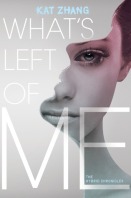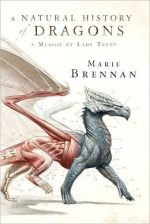 Please welcome my friend M.K. Hutchins, whose YA fantasy novel Drift is both a Junior Library Guild Selection and a VOYA Top Shelf Honoree. I asked her why she wrote science fiction and fantasy, as opposed to other genres, and she responded with this delightful set of book recommendations and musings about the value of the genre.
Please welcome my friend M.K. Hutchins, whose YA fantasy novel Drift is both a Junior Library Guild Selection and a VOYA Top Shelf Honoree. I asked her why she wrote science fiction and fantasy, as opposed to other genres, and she responded with this delightful set of book recommendations and musings about the value of the genre.
—
I write fantasy and science fiction for a very simple reason: it’s what I love to read. But explaining why in the abstract proves beyond me. So here’s a list of novels and short stories that exemplify what I love best about the genre. Of course other genres can do these things, but the blend of these elements is the reason I come back to fantasy and science fiction over and over again.
 Sense of Place: It’s okay, in SFF, to lavish a little extra love on the setting and description. The Ghost Bride by Yangsze Choo does a remarkable job of creating immersive settings — when I think of this book, I still smell coconut. The novel takes me across the world, back in time, and then drags me into a supernatural realm. J.S. Bang’s short story, “The Judge’s Right Hand”, likewise transports me with careful use of details and voice — this time into an eerie Western frontier.
Sense of Place: It’s okay, in SFF, to lavish a little extra love on the setting and description. The Ghost Bride by Yangsze Choo does a remarkable job of creating immersive settings — when I think of this book, I still smell coconut. The novel takes me across the world, back in time, and then drags me into a supernatural realm. J.S. Bang’s short story, “The Judge’s Right Hand”, likewise transports me with careful use of details and voice — this time into an eerie Western frontier.
 Ideas. When I was a kid, my family played a game at the dinner table called PMI: Pluses, Minuses, and Interesting Points. We’d start with a question — what if all cars were blue? — and go from there. SFF asks what if? all the time, extrapolating technology and culture from simple starting points. Kat Zhang’s What’s Left of Me is an alternate history where everyone is born with two souls; it delves into the PMIs of sharing a body and never being alone. This was great fun. Leah Cypess’ “What We Ourselves Are Not” explores a fascinating what if? about culture and memory.
Ideas. When I was a kid, my family played a game at the dinner table called PMI: Pluses, Minuses, and Interesting Points. We’d start with a question — what if all cars were blue? — and go from there. SFF asks what if? all the time, extrapolating technology and culture from simple starting points. Kat Zhang’s What’s Left of Me is an alternate history where everyone is born with two souls; it delves into the PMIs of sharing a body and never being alone. This was great fun. Leah Cypess’ “What We Ourselves Are Not” explores a fascinating what if? about culture and memory.
 Removing Contextual Bias. It’s pretty much impossible to talk about Prohibition without talking about the 1920’s. Place a story in a fantasy world or a space station, and suddenly it’s possible to take a fresh look at government control, the social cost of alcohol, and maybe even make me look at the 1920’s in a new way.
Removing Contextual Bias. It’s pretty much impossible to talk about Prohibition without talking about the 1920’s. Place a story in a fantasy world or a space station, and suddenly it’s possible to take a fresh look at government control, the social cost of alcohol, and maybe even make me look at the 1920’s in a new way.
I’m enamored of Marie Brennan’s A Natural History of Dragons in part because in taking me to new places, it makes me think about my own world — both about how culture interact and clash and about how science happens. There’s also a delightful narrative voice and dragons. Dragons are awesome. “Tuesdays with Molakesh the Destroyer” by Megan Grey takes a familiar situation — being a high school student — and makes me revisit it with fresh eyes because, well, that old neighbor next-door is a demon. It’s not exactly my world anymore.
 Adventure. This probably doesn’t need any explanation. I love a great adventure. The Throne of the Crescent Moon by Saladin Ahmed has heart-pounding action, intrigue, and mystery, along with compelling characters, tight worldbuilding, and really scary monsters. I also heartily recommend Eric James Stone’s “Rijiggering the Thingamajig.”
Adventure. This probably doesn’t need any explanation. I love a great adventure. The Throne of the Crescent Moon by Saladin Ahmed has heart-pounding action, intrigue, and mystery, along with compelling characters, tight worldbuilding, and really scary monsters. I also heartily recommend Eric James Stone’s “Rijiggering the Thingamajig.”
 Sheer Fun. Maybe when there’s magic and spaceships in the manuscript, it’s easier to step back and laugh at yourself. I really don’t know why, but whether it’s smiling at a hobbit’s understated wit or laughing out loud at a purposefully-zany plot, I enjoy the humor I find in SFF. The Hero’s Guide to Saving Your Kingdom by Christopher Healy is ridiculous and over-the-top in the best possible, Middle Grade kind of way. I also love Oliver Buckram’s “When Robot Mermaids Attack,” and his “Un Opera nello Spazio” and “Half a Conversation, Overheard While Inside an Enormous Sentient Slug”. Oliver Buckram’s an expert at this.
Sheer Fun. Maybe when there’s magic and spaceships in the manuscript, it’s easier to step back and laugh at yourself. I really don’t know why, but whether it’s smiling at a hobbit’s understated wit or laughing out loud at a purposefully-zany plot, I enjoy the humor I find in SFF. The Hero’s Guide to Saving Your Kingdom by Christopher Healy is ridiculous and over-the-top in the best possible, Middle Grade kind of way. I also love Oliver Buckram’s “When Robot Mermaids Attack,” and his “Un Opera nello Spazio” and “Half a Conversation, Overheard While Inside an Enormous Sentient Slug”. Oliver Buckram’s an expert at this.
 Nostalgia. So, I’m a sucker for things like fairy-tale retellings. It turns something well-know and much-loved into something fresh that I can experience again for the first time. The Desert of Souls by Howard Andrew Jones isn’t based on any particular story that I know of, but it feels like it belongs with Arabian Nights. “The Light Crusader’s Dark Desert” by James Beamon makes great use of ancient deities and a post-apocalyptic world and creates something new and amazing from them.
Nostalgia. So, I’m a sucker for things like fairy-tale retellings. It turns something well-know and much-loved into something fresh that I can experience again for the first time. The Desert of Souls by Howard Andrew Jones isn’t based on any particular story that I know of, but it feels like it belongs with Arabian Nights. “The Light Crusader’s Dark Desert” by James Beamon makes great use of ancient deities and a post-apocalyptic world and creates something new and amazing from them.
I suppose I love speculative fiction because of the way it makes my brain work — it gives me wondrous settings and ideas to experience and explore, along with an emotional ride that is thrilling, thought-provoking, or hilarious (or all in turn). Whether I’m reading it or writing it, this is what I come to SFF for.
—
M.K. Hutchins’ YA fantasy novel Drift is both a Junior Library Guild Selection and a VOYA Top Shelf Honoree. Her short fiction appears in IGMS and Daily Science Fiction. She studied archaeology at BYU, giving her the opportunity to compile ancient Maya genealogies, excavate in Belize, and work as a faunal analyst. She blogs at http://www.mkhutchins.com.